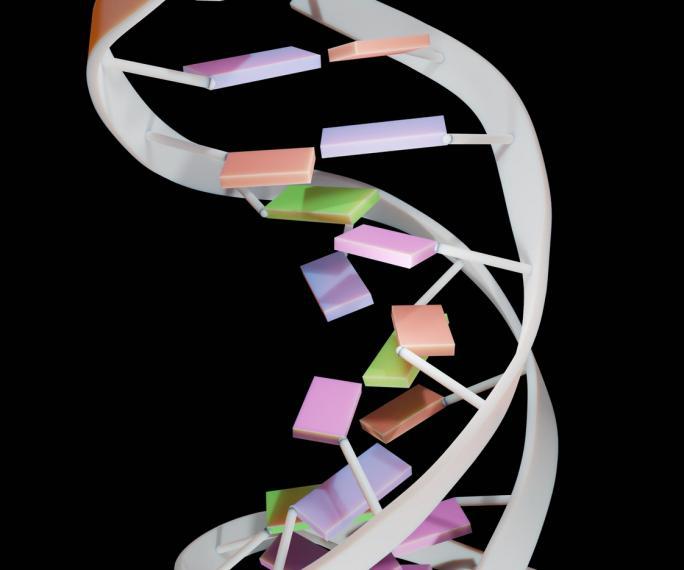Q&A with Dr. Derek O’Flaherty

Dr. Derek O’Flaherty joined the Department of Chemistry at the University of Guelph in October 2020 as an assistant professor. Derek was recently awarded a Human Frontier Science Program Research Grant - Early Career for his project “Fundamental Research into the Origin of Life.” We had the opportunity to speak with him about his focus on developing nucleic-acid biotechnology and assembling artificial cells to seek insight into the origins of life.
Please describe your research focus in plain language in a few sentences.
My research focuses on the development of novel nucleic-acid (DNA/RNA) based technology. This research is applied to the development of biotechnology and origins of life. We use organic chemistry to make new nucleic-acid materials that have enhanced properties. We then study the biochemistry of these new materials.
What interests you most about nucleic-acid chemistry—why is it an important area of study?
Since my first research experience with nucleic-acid chemistry, as an undergraduate co-op student, I have been fascinated with how versatile these molecules are. Apart from their well-known role as genetic information carriers, nucleic-acids have applications in catalysis, molecular recognition, biosensing, and programmable materials (to name a few). Their versatility is one of the many reasons I think studying these molecules is both important and stimulating.
What is artificial cell assembly and what are some of its applications?
Artificial cell assembly has many applications in fields of research, such as medicine and biotechnology. In our group, we use them as a means of studying minimal biological cells. Prior to the evolution of the modern cells, researchers believe that early lifeforms relied on a much simpler version of the cell. As such, we take a bottom-up approach of building a synthetic cell composed of a genetic polymer and a dynamic lipid bilayer. Our studies will shed light on the mechanisms that aided in driving the origins of life.
Your research is highly interdisciplinary, lying at the interface of chemistry and biology. What are the benefits of interdisciplinary research and collaboration?
Interdisciplinary research is, to me, eye opening. As a trained chemist, I am always amazed by how other disciplines seek to answer a research question. Apart from never being dull, interdisciplinary research allows us to investigate a process from beginning to the end, making the journey all the more rewarding. For instance, graduate students in my group would not only make chemically-modified molecules, but test their biochemical/biological properties as well.
What is a recent research project/initiative that you are especially excited about?
Our group, with collaborators from France and the Netherlands, was awarded the Human Frontier Science Program Research Grants - Early Career to study primitive processes pertaining to the origins of life. Our interdisciplinary team will investigate synergistic processes by combining nucleic-acids, membranes and coacervate research. We hope to elucidate how each component could have co-existed, and more-importantly, how they could have worked together to aid early lifeforms.
Are you currently looking for undergraduate, graduate, or postdoctoral students?
Yes! I am always looking for motivated undergraduate and graduate students.